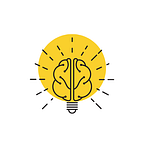AI is (not) coming for your Job!
One of the biggest (credible) fears of evolving AI technology is whether it will displace human jobs. The popular opinion is that now that generative models such as OpenAI’s GPT-4 can produce context aware, coherent and fluent text at a near-human-level, a number of jobs can be replaced by comparatively inexpensive AI models. Indeed, some expert sources have studied this possibility and found it to be very likely!
Here are a few quotes from from Goldman Sachs’ report:
the labor market could face significant disruption
we find that roughly two-thirds of current jobs are exposed to some degree of AI automation, and that generative AI could substitute up to one-fourth of current work.
generative AI could expose the equivalent of 300 million full-time jobs to automation.
In a study conducted by researchers at Princeton, the authors project that 15 of the top 20 occupations that will be threatened due to AI are related to post-secondary teaching. Additionally, the industries that are likely going to be affected the most are legal services and administrative services with 44% and 46% of jobs potentially threatened due to automated respectively.
Indeed, anyone who has used ChatGPT or any other generative AI model has probably marveled at how fluent, informative and convincing it can be in its generated content. Just take a look at this example (ChatGPT generated)!
Explain artificial intelligence as if you were yoda!
Learn and adapt, AI can. Data it ingests, knowledge it gathers. Teach it, you can. Improve, it does, with every interaction. Powerful tool, AI can be, but use wisely, one must.
In the hands of the wise, a force for good, AI can be. Ethical considerations, always mindful we must be. The future, AI shapes. Uncertain, it remains, but with responsibility, shape it we can, hmm.
This fun example just shows how capable AI can be. Not only can it create novel and creative content (there is a fair bit of debate about this, and I will try to disentangle it in my next post, so stay tuned), but it can expertly classify, answer questions, reason (not very well), and summarize, making it a very capable potential employee.
How then can we expect that AI isn’t coming for all our jobs?
The historical trend of scientific developments disrupting jobs is undeniable. However, this disruption has never been a sudden, all-encompassing event. Instead, it unfolds over time, reshaping the nature of work in various fields. The 2011 New York Times article titled “Armies of Expensive Lawyers, Replaced by Cheaper Software” talks about how technology has greatly reduced the effort required for legal document “discovery.” Instead of humans having to painstakingly go through thousands of documents manually, they can now use a search engine to “e-discover” relevant documents in an instant. Indeed, NYT reports that compared to the $2.2 million that it took to discover 6 million documents in the antitrust case against CBS in 1978, it took only about $100k to “discover” a similar number in 2011.
Although the use of search engines significantly reduced the manpower required for document discovery, the jobs did not all just disappear overnight. The field likely took years to adapt to a more digital format, during which jobs gradually shifted to other tasks. In addition to a number of adjacent jobs such as document digitization, discovery evaluation and manual error correction that sprung out of the development, a number of jobs were also created in other sectors such as the software sector for the creation and improvement of similar systems.
In support of my argument, here are a few statements from the same Goldman Sachs report we saw at the beginning of this article:
The good news is that worker displacement from automation has historically been offset by creation of new jobs, and the emergence of new occupations.
The combination of significant labor cost savings, new job creation, and higher productivity for non-displaced workers raises the possibility of a productivity boom that raises economic growth substantially.
The key takeaway is that the shift towards automation due to a novel scientific development or technological development is a process that unfolds over time, rather than an abrupt, overnight change. As technology eases certain aspects of a profession, the requirements for human involvement in those areas gradually diminish. However, individuals affected by this transformation often find new ways to apply their skills or invest their saved time in different tasks. I will leave you with a quote from my favorite medical doctor/Youtuber: Alert, not Anxious!
